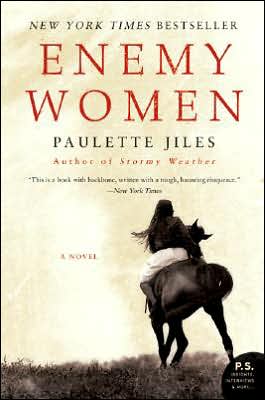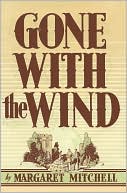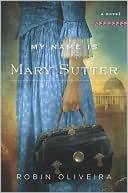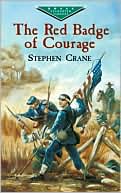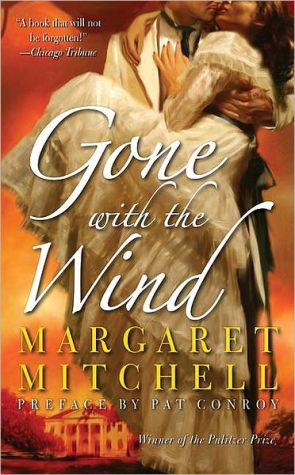Enemy Women
For the Colleys of southeastern Missouri, the War between the States is a plague that threatens devastation, despite the family’s avowed neutrality. For eighteen-year-old Adair Colley, it is a nightmare that tears apart her family and forces her and her sisters to flee. The treachery of a fellow traveler, however, brings about her arrest, and she is caged with the criminal and deranged in a filthy women’s prison.\ But young Adair finds that love can live even in a place of horror and despair....
Search in google:
PerfectBound e-book extra: A Reading Group Guide to Enemy Women. From critically acclaimed, award-winning poet and memoirist Paulette Jiles comes a debut novel of startling power and savage beauty -- an extraordinary story of survival and love in the midst of a torn nation's bitter agony.New York Times - Janet MaslinThis is a book with backbone, written with tough, haunting eloquence by an author determined to capture the immediacy of her heroine's wartime odyssey. And Ms. Jiles, in her debut novel, has brought spellbinding intensity to the process of leading readers backward through time.
Oct. 29, 1864\ Dear Wife and Children; I take my pen with trembling hand to inform you that I have to be shot between 2 & 4 o'clock this evening. I have but few hours to remain in this unfriendly world. There are 6 of us sentenced to die in retaliation of 6 Union soldiers that was shot by Reeves men. My dear wife don't grieve after me. I want you to meet me in Heaven. I want you to teach the children piety, so that they may meet me at the right hand of God. . . . I don't want you to let this bear on your mind any more than you can help, for you are now left to take care of my dear children. Tell them to remember their dear father. I want you to tell all my friends that I have gone home to rest. I want you to go to Mr. Conner and tell him to assist you in winding up your business. If he is not there then get Mr. Cleveland. If you don't get this letter before the St. Francis River gets up you had better stay there until you can make a crop, and you can go in the dry season. It is now half past 4 a.m. I must bring my letter to a close, leaving you in the hands of God. I send you my best love and respect in this hour of death. Kiss all the children for me. You need have no uneasiness about my future state, for my faith is well founded and I fear no evil. God is my refuge and my hiding place.\ Good-bye Amy\ Asey Ladd\ --Asa Ladd, a Confederate prisoner of war in Gratiot Street Prison, St. Louis, who was selected along with five others by the Union command of that city to be executed in retaliation for Reeves's execution of Major James Wilson of the Union Militia. Ladd was from southeastern Missouri. It was the third year of the war and by now there was hardly anybody left in the country except the women and the children. The men were gone with Colonel Reeves to live in the forests, and many families had fled to Texas or St. Louis. Abandoned house places looked out with blank windows from every hollow and valley in the Ozark mountains so that at night the wind sang through the disintegrating chinking as if through a bone flute. Adair Colley had just turned eighteen in early November of 1864 when the Union Militia arrested her father and tried to set the house on fire. Her sister Savannah saw them first; a long line of riders in blue trotting in double column as they turned into the road that led to the Colley farm.\ All through the last three years of the war Adair's father had tried to keep his children close to home. Because he was a justice of the peace, he was called Squire, and the newspapers he subscribed to came addressed to Squire M. L. Colley. Her father had determined to stay out of the war and keep his children out of the reach of soldiers of either army and he had succeeded in this for three years. He read in the Little Rock paper that the Missouri Union Militia was being thrown together out of troops dredged up from the riverfronts of St. Louis and Alton, from the muddy Missouri River towns. Men who joined up for a keg of whiskey and five dollars a month.\ The trained and disciplined Union troops had long ago been sent to the battlefields of the East, to Virginia and Tennessee, while the hastily recruited Militia had been sent down into the Ozarks to chastise the families whose men had gone to the Southern Army, to catch and arrest them when they returned from their six-month enlistments, and to punish those who might be suspected of harboring Southern sympathies.\ Adair's father did not know what the law was on this matter, concerning men who had been in the Southern Army and had returned home and were soldiers no longer, or those who had never joined up at all but had no means of proving it. But it was no matter, for the Union Militia knew no law. After they burnt down the courthouses they then began to ambush the mail carriers, so the southeastern Ozarks seemed a place cut off from the entire world.\ Adair's father read to them in the evenings out of the rare newspaper he managed to acquire, the Memphis Appeal and the St. Louis Democrat. Adair sat on the clothes trunk to stare at the fire and listen to the inflamed prose of the Democrat. She would rather he read the racing news from the Nashville paper, for she wanted to hear if Copperbottom's sons were running but the war consumed everything, even human thoughts and horse races.\ There are four main rivers coming down out of the southeastern Missouri Ozarks into the Mississippi. They are the Eleven-Point, the Current, the Black, and the Saint Francis. For three years Adair had seen at a distance soldiers of both armies riding up these river valleys in search of one another. Her brother, John Lee, rode to the ridges to stand watch for them every morning, for the Fifteenth Missouri Cavalry under Colonel Reeves would take your horses as quick as would any Militia. He watched for their smoke, at dawn when the soldiers would be lighting their breakfast fires. He did not go to war himself for he had a withered arm. So the Union Militia raided and set fire to the outlying places all around the Colley farm but continued somehow to miss them.\ All through this time Adair's father remained absorbed in his books of law, his newspapers passed from hand to hand down the Wire Road or the Nachitoches Trace by neighbors or one of the few travelers. The light fell from the twelve-paned windowlights onto the harvest table as he wrote, arguing to editors the causes and the Constitutional points of the war in letters that became harder and harder to mail.\ As the war dragged on, Adair began to hear from her cousins and from what neighbors remained to them that women were being taken by the Union Militia and sent to prison for disloyalty, that the women were accused of supplying clothing and food to their brothers, their fathers, husbands, sons, or cousins who rode with Timothy Reeves. That the Union had arrested and sent away the Blakely sisters and the Sutton girls and old Mrs. Holland from Jack's Fork. Nobody seemed to know where it was that the women were being held in that far city, but after a while word came back that it was in places called Gratiot and the St. Charles Street Prison for Women.\ In stained coats of Federal blue the Militia came upon the towns of Doniphan Courthouse and Alton, the Crites homestead and all the house places down Pike Creek and the Current River, carrying away jewelry and horses, quilts and silver, to be sold on the black market in St. Louis. They burned houses and shot whoever got in their way. They beat Adair's father in the face with such force Adair thought they had put his eye out. They used a wagon spoke and afterward they threw it away stained with his blood and hair.\ The Militia got the horses and then broke their way inside the house. One soldier started shoveling the coals from the fireplace out over the floors and onto the big harvest table, while another tipped over the china cabinet and started dancing up and down in the dish fragments, singing, Oh sinner, come view the ground, where you shall shortly lie. . . .\ There was a thin November snow coming down at that time from behind the Courtois Hills, light skeins of snow unwinding themselves over the valley of Beaverdam Creek. Then it turned to a hard rain. It was this that saved the house. The cold rain came down driving like hail, and steam blossomed hot out of the fireplace where water was streaming down the chimney. A strong wind came up out of the southwest and blew off Adair's bonnet and tore at her bonnet strings until she thought they would cut her throat.\ While the girls fought the fire the Militia carried out everything from the house in the way of food or valuables that they found. They came out of the house with their coat collars turned up against the rain, their arms loaded, and between the door and their wagon was a trail of spoons and bobbins and trodden paper. Then they went on, taking her father away in their commissary wagon with his arms tied behind him and without a hat. The rain beat into his face, and the blood ran draining down in thin streams. Then the tilting wagon and the soldiers went off into a world of hammering water and the iron tires were surrounded by a thin halo of spraying mud. By evening the Little Black River had risen to flood stage.\ So it was in the third year of the Civil War in the Ozark mountains of southeastern Missouri, when Virginia creeper and poison ivy wrapped scarlet, smoky scarves around the throats of trees, and there was hardly anybody left in the country but the women and the children.
\ From Barnes & NobleThe Barnes & Noble Review from Discover Great New Writers\ Set in war-torn Missouri during the Civil War, Enemy Women is a timeless story of a heroine who perseveres as the world around her crumbles. \ Three years into the war, the Union militia is burning homes throughout the eastern Ozarks in retaliation against the families whose men fought for the Confederacy. Although Squire Colley, a justice of the peace, has maintained neutrality in the conflict, his family does not escape the militia's wrath -- their home is burned, their possessions stolen, and Colley himself is arrested for "disloyalty" and taken away.\ Colley's 18-year-old daughter, Adair, joins her sisters, who set out on foot to find their jailed father and demand his release. But before long the stakes are raised, and Adair herself is accused of espionage. Her interrogator, Major Neumann, urges her to confess, but Adair refuses to admit to crimes she did not commit. Eventually, the major is transferred to another jurisdiction, but not before a romantic interest in Adair has been kindled. He helps her plan an escape from prison and promises to find her when the war is finally over. In poor health, and with virtually no possessions other than two gold pieces, Adair sets out to find her family and rebuild her life. (Spring 2002 Selection)\ \ \ \ \ \ (cover) - New York Times Book Review\ "…remarkable happens...it becomes inspired… Adair becomes a storyteller in order to survive. And so - triumphantly - does Paulette Jiles."\ \ \ Entertainment Weekly"Jiles has created an unsentimental yet tender world of destruction, despair, and hope that’s a joy to inhabit."\ \ \ \ \ Toronto Globe and Mail"ENEMY WOMEN deserves the Pulitzer Prize."\ \ \ \ \ New York Times"This is a book with backbone, written with tough, haunting eloquence."\ \ \ \ \ People“Jiles paints the struggles of the era with the same intensity as Charles Frazier’s 1997 bestseller Cold Mountain …”\ \ \ \ \ Booklist"...[G]ifted Missouri historian...acutely portrays Missouri’s logistic misfortune as a hotbed of both Union and Confederate violence."\ \ \ \ \ Milwaukee Journal Sentinel"…beautifully written passages…a real page-turner."\ \ \ \ \ Washington Post"Comparing Enemy Women to Cold Mountain doesn’t quite do Jiles’s novel justice."\ \ \ \ \ Anna Quindlen"I loved…it provides the greatest suspense a story can offer: will someone we’ve come to love persevere and prosper?"\ \ \ \ \ People Magazine"Jiles paints the struggles of the era with the same intensity as Charles Frazier’s 1997 bestseller Cold Mountain …"\ \ \ \ \ Kaye Gibbons"Enemy Women is all strength and poetry, as are history’s grandest ordinary women and extraordinary writing."\ \ \ \ \ Gordon Lish"You know what it means when there is Paulette Jiles inside? Be smart. Open the book."\ \ \ \ \ Carolyn Chute"ENEMY WOMEN...has a Homeresque feel to it. Like something written by an old soul."\ \ \ \ \ Entertainment Weekly“Jiles has created an unsentimental yet tender world of destruction, despair, and hope that’s a joy to inhabit.”\ \ \ \ \ New York Times“This is a book with backbone, written with tough, haunting eloquence.”\ \ \ \ \ Washington Post“Comparing Enemy Women to Cold Mountain doesn’t quite do Jiles’s novel justice.”\ \ \ \ \ Milwaukee Journal Sentinel“…beautifully written passages…a real page-turner.”\ \ \ \ \ Toronto Globe and Mail“ENEMY WOMEN deserves the Pulitzer Prize.”\ \ \ \ \ Booklist“...[G]ifted Missouri historian...acutely portrays Missouri’s logistic misfortune as a hotbed of both Union and Confederate violence.”\ \ \ \ \ New York Times Book Review (cover)“…remarkable happens...it becomes inspired… Adair becomes a storyteller in order to survive. And so - triumphantly - does Paulette Jiles.”\ \ \ \ \ Janet MaslinThis is a book with backbone, written with tough, haunting eloquence by an author determined to capture the immediacy of her heroine's wartime odyssey. And Ms. Jiles, in her debut novel, has brought spellbinding intensity to the process of leading readers backward through time. \ — New York Times\ \ \ \ \ Publishers WeeklyHFor Adair Randolph Colley, at 18 the eldest daughter of a widowed Missouri Ozarks schoolmaster and justice of the peace, the Civil War becomes personal when her father, who has remained neutral in the conflict, is arrested by the Union militia, their home is nearly burned and their possessions stolen. At the start of this spirited first novel, Adair and her two younger sisters try to follow their father's captors, but Adair is falsely denounced as a Confederate spy. At the prison in St. Louis, upright commandant Maj. William Neumann is embarrassed to be interrogating women and has requested a transfer to a fighting unit. He's touched by Adair's beauty and spirit and asks her to give him some information so she can be released. Instead, she writes the story of her life, augmented by folk tales and fables, and he finds himself falling in love. When he gets his reassignment orders, he proposes marriage and asks her to escape, promising to find her after the war. Thus begins a long and terrible journey for each of them. Poet and memoirist Jiles (North Spirit) has written a striking debut novel whose tone lingers poignantly. Not a typical romantic heroine, Adair has the saucy naevete of an unsophisticated countrywoman and the wily bravery born of an honest character. Jiles's strengths include a sure command of period vernacular and knowledge of the social customs among backwoods people, as well as a delicate hand with the love story. Sure to be touted as a new Cold Mountain, this stark, unsentimental, yet touching novel will not suffer in comparison. Copyright 2001 Cahners Business Information.\ \ \ \ \ Library JournalPoet and memoirist Jiles (North Spirit) enters new territory, both historically and stylistically, with her first novel, which is set in the Missouri Ozarks during the Civil War. Adair Colley is 18 years old and leads a happy, untroubled life with her father, brother, and younger sisters on the family homestead in southeastern Missouri until the war, in the form of the Missouri Union Militia, touches them. After taking the family's possessions, the militia sets fire to the house and barn. Brother John Lee escapes to the woods, but patriarch Marquis Colley is accused of disloyalty, badly beaten, and taken away, leaving the three girls on their own. Though innocent, Adair is soon arrested for spying and sent to prison in St. Louis. How she survives that institution's abominable conditions, falls in love with the major in charge, and manages to return to her old home make for an enthralling narrative. Very little has been written about the degrading condition endured by female prisoners, who were often unjustly accused, and the details that Jiles unearthed via her research add much to our knowledge of the Civil War. Recommended for all public libraries. Ann Fleury, Tampa-Hillsborough P.L., FL Copyright 2001 Cahners Business Information.\ \ \ \ \ School Library JournalAdult/High School-A well-told historical novel related by a young woman who was imprisoned during the Civil War. The story begins in southeastern Missouri where spoiled, outspoken Adair Colley, 18, lives with her bookish father, crippled brother, and two younger sisters. When Tim Reeves's Union militia burns their house and barn, taking her father prisoner, Adair and her sisters set off on horseback to plead for his release. Their brother has escaped both the army and Reeves's band by hiding out with Southern guerrillas. Adair is denounced as a spy and taken to prison, where she shares a cell with prostitutes. Soon she comes in contact with Major William Newmann, who tries to convince her to turn in her brother so she can be released. Instead of a confession, Adair composes an elaborate fairy tale. The major is unable to deny his feelings for her, and urges her to escape just before he is transferred to the front lines. The rest of the book deals with her risky trek home and the major's exploits in battle and subsequent release from the army. Similar to Charles Frazier's Cold Mountain (Atlantic Monthly, 1997), this love story gives vivid descriptions of the dangerous countryside and glimpses into the horrors of war and its aftermath. Chapters begin with contemporary journal entries, letters, and news stories. Magical, lyrical, and hauntingly beautiful, this title is a must read for its strong female protagonist and a side of the Civil War not usually dealt with in history books.-Pat Bender, The Shipley School, Bryn Mawr, PA Copyright 2002 Cahners Business Information.\ \ \ \ \ Kirkus ReviewsA remarkable debut chronicles the challenges a young woman, falsely imprisoned as a spy during the Civil War, faces when her home is destroyed and her heart given to the enemy.\ \
